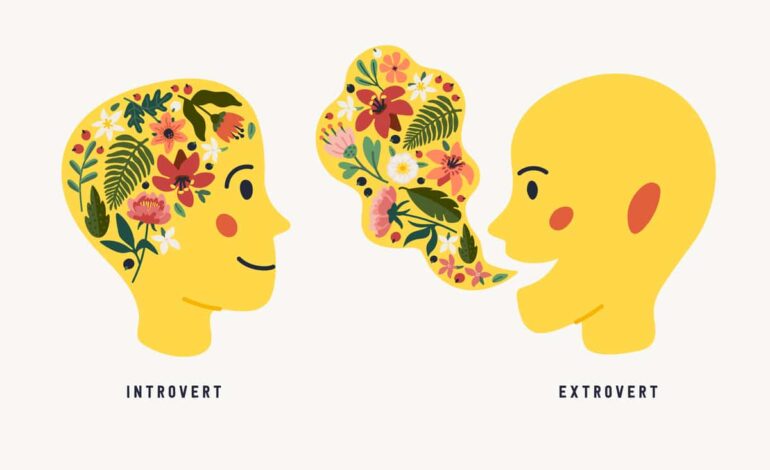
As an introvert, you may have felt like a fish out of water at times. You’ve been told that extroverts are the ones who get ahead in life, and that introverts are wallflowers who fade into the background. But there’s so much more to being an introvert than meets the eye—and there’s nothing wrong with being an introvert!
In fact, introverts may possess hidden strengths that—when nurtured and harnessed—can propel them to great personal and professional heights. In a world that often seems designed for extroverts, it’s crucial for introverts to embrace their unique qualities and embark on a self-development journey tailored to their temperament.
The Introvert Advantage
Introverts are often misunderstood. They’re quiet, reserved and prefer to work alone. These traits often make people think that introverts aren’t as successful as their extroverted counterparts, but nothing could be further from the truth.
In fact, introverts’ innate characteristics—such as introspection, deep thinking and empathy—are actually strengths in disguise. When leveraged correctly, these traits can help introverts achieve success in all areas of life.
For example, an introvert’s tendency to spend time reflecting on questions before answering them allows them to create well-thought out responses and give clear answers to tough questions. This also makes them excellent listeners who are able to understand their audience’s needs and concerns better than extroverts who tend to answer quickly without thinking about their response first. In addition, since they have a strong desire for solitude and quiet time alone with their thoughts, they are able to focus on a single task without getting distracted by external stimuli like social interaction or noise around them which allows them meet deadlines more easily than extroverts who need more frequent breaks from work due to feeling overwhelmed by too many things going on around them at once.
The Power of Self-Awareness
It’s a common misconception that introverts are painfully shy or anti-social. In fact, introverts are simply people who need time alone to recharge their batteries and process the world around them. Introverts may seem socially awkward or quiet, but this isn’t necessarily a bad thing. In fact, being an introvert can be a huge asset in your personal growth and development as a person!
Introverts have the ability to look inward, which is why they often feel so deeply. They can process their emotions and thoughts more easily than extroverts because they’re less distracted by other people’s energy and activity. When you’re able to look inward with self-awareness, you can gain valuable insights about yourself—and make changes for the better. This is exactly what introverts do best!
Networking for Introverts

Networking might not be a favorite activity for introverts, but we’ll provide practical tips for building a meaningful professional network that aligns with your personality. First, it’s important to understand what networking is and how it works. Networking is simply connecting with people—whether they’re friends, family members, or people you met at an event—and building relationships with them. This can happen in person or online, and it can happen in groups or one-on-one.
Networking is not just about making connections—it’s also about learning from other people and sharing information about yourself so that the people around you know more about who you are and what interests you. Networking helps us make new friends, develop relationships with colleagues at work, build our professional reputations, and find mentors who can help us grow as professionals.
Quiet Leadership
As an introvert myself, I know that it’s not always easy to be authentic and impactful in the workplace—especially when you’re trying to do things that are counterintuitive to your nature.
As an introvert, you’ll probably feel more comfortable being quiet than speaking up in meetings. You may think that others would prefer for you to take charge of situations rather than wait for others to make decisions for themselves. And you might feel like it’s best for everyone if you just stay out of the way most of the time.
But that’s not always true! And being an introvert doesn’t mean that you have to change who you are or how you lead in order to succeed at work. It just means that there are some leadership styles that resonate with introverted individuals more than others—and learning about those different styles will help you find a way to lead authentically and effectively within your company culture.
Embracing Solitude
Solitude is a necessary part of any person’s life. Whether you’re an extrovert or an introvert, having some time to yourself to rest and reflect is important for creativity, self-reflection, and personal growth.
As an introvert, I’ve learned that solitude isn’t just about spending time alone—it’s also about giving myself permission to be quiet when I need to be. It’s about allowing my mind to wander and letting my body rest when I’m tired. And it’s about making sure that I take the time to listen to myself so that my needs are met in healthy ways.

But when we first start exploring solitude as a concept, it can feel scary: What if there’s no one around? What if no one wants to talk with me? What if I need help but no one can hear me scream? These are all valid questions, but they don’t have to keep us from taking steps towards working with ourselves in this way. In fact, they shouldn’t! The more we practice being alone with ourselves and our thoughts, the easier it becomes for us to know what kinds of situations make us feel most comfortable.
Practical Tips and Exercises
The world we live in is set up to favor extroverts, and it can be hard to find a way to get the things you need. But there are ways. We’ve got some practical tips for enhancing your self-development journey as an introvert, no matter what stage you’re at in your personal development journey.
One thing many introverts struggle with is figuring out how to make friends and connections with other people. Here’s one tip: if you see someone who looks interesting or smart, ask them about their work! It’s a great way to break the ice and start a conversation without having to do anything scary like… talking about yourself.
Another great tip: put yourself out there! Take risks by volunteering for something or starting a new hobby that challenges your comfort zone—it will help make sure that you’re always growing as an individual, which will make all the difference when it comes time for interviews and job applications.
The bottom line is that being an introvert doesn’t have to hold you back. The key is understanding your strengths and how best to harness them in order to reach your full potential. I hope this blog post has opened your eyes to the many ways in which being an introvert can be a benefit, not a limitation. I know that if you embrace your inner introvert, you’ll be able to reach heights you never thought possible.
RUCHI RATHOR Founder & CEO
Payomatix Technologies Pvt. Ltd.
FOUNDER AND INVESTOR | PAYMENTS PROCESSING EXPERT | MERCHANT ACCOUNT SOLUTIONS | WHITE LABELLED PAYMENT GATEWAY | Dreamer, Creator, Achiever, Constantly Evolving
Website Ruchi Rathor: https://ruchirathor.com
Website Healing Heart https://thehealingheart.me/
Instagram https://www.instagram.com/ruchirathor/
LinkedIn https://www.linkedin.com/in/ruchirathor12/
Facebook https://www.facebook.com/ruchi.rathor.magnificient
Tumblr https://www.tumblr.com/blog/ruchirathor-thehealingheart
Medium https://medium.com/@ruchirathor_23436









